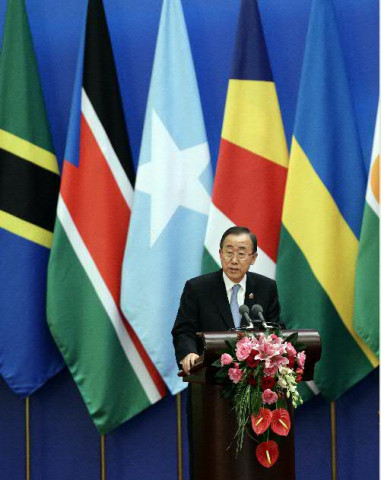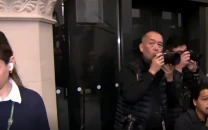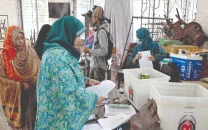Annan, Ban call on Security Council to act on Syria
Ban said there was an "extreme urgency" for action to make government and opposition forces halt the violence.

Russia and China are expected to veto the resolution at the 15-nation council despite mounting global concern over Syria after a Damascus bomb attack killed three close associates of President Bashar al-Assad.
Ban said there was an "extreme urgency" for action to make government and opposition forces halt the violence.
Annan, the UN-Arab League envoy, said the council must take "decisive" action on the conflict after he persuaded the major powers to postpone the vote originally set for Wednesday.
"The deteriorating situation in Syria underscores the extreme urgency for all sides to stop armed violence in all its forms, implement the six point plan and move swiftly towards a political dialogue," Ban said in a statement.
Ban "strongly condemns" the Damascus bomb attack in which Defense Minister General Daoud Rajha and two other top officials were killed, said the statement released by his office.
He also expressed concern about the use of "heavy weapons" by Syrian security forces and urged the Security Council "to shoulder its responsibility and take collective and effective action on the basis of UN Charter obligations and in view of the seriousness of the situation."
Annan intervened just ahead of a scheduled vote on the Western-backed resolution Wednesday to get it delayed. But with no new diplomatic proposals emerging, a new vote was called for Thursday.
The UN-Arab League envoy "urged members of the Security Council to unite and take concerted and strong action that would help stem the bloodshed in Syria and build momentum for a political transition," said his spokesman Ahmad Fawzi.
Annan believes the latest violence "only underscores the urgency of decisive council action."
But Russia maintained a threat to veto any resolution under Chapter VII of the UN Charter, which allows the Security Council to impose sanctions to preserve peace and security and endorse military action should they fail.
Russia's President Vladimir Putin and US President Barack Obama spoke by telephone, but failed to overcome differences over the conflict.
"We cannot accept Chapter VII and the section about sanctions," Russia's Foreign Minister Sergei Lavrov said in Moscow on Wednesday.
Russia and China, using their powers as permanent council members, have twice vetoed previous resolutions hinting at sanctions against Damascus.
The British resolution, backed by the United States, France, Germany and Portugal, calls for non-military sanctions under Chapter VII if Assad does not withdraw heavy weapons from Syrian cities in 10 days.
"We will be voting tomorrow morning," said Britain's UN Ambassador Mark Lyall Grant.
"We have very clearly said to our Russian and Chinese friends, we are ready to negotiate," said France's UN Ambassador Gerard Araud.
"It is a Chapter VII resolution with a threat of sanctions. We consider the situation is serious enough in Damascus and in Syria that we move towards this goal," he told reporters.
"We want to give diplomacy a chance but there has to be meaningful engagement on the side of Russia and China with our resolution," Germany's UN envoy Peter Wittig told reporters.
The mandate of the UN Supervision Mission in Syria (UNSMIS) ends on Friday and without a resolution, the UN may have to hurriedly withdraw the nearly 300 unarmed observers now in Damascus.
More than 17,000 people have been killed since an uprising against Assad began 16 months ago, activists say.
More than 200 people, mostly civilians, were killed on Wednesday, including 38 in Damascus, where rebels are pressing an all-out offensive, according to the Syrian Observatory for Human Rights.
The UN Security Council meanwhile expressed "grave concern" that the Syrian conflict could spill over into Lebanon following a spate of cross-border attacks in recent months, some of them deadly.



















COMMENTS
Comments are moderated and generally will be posted if they are on-topic and not abusive.
For more information, please see our Comments FAQ